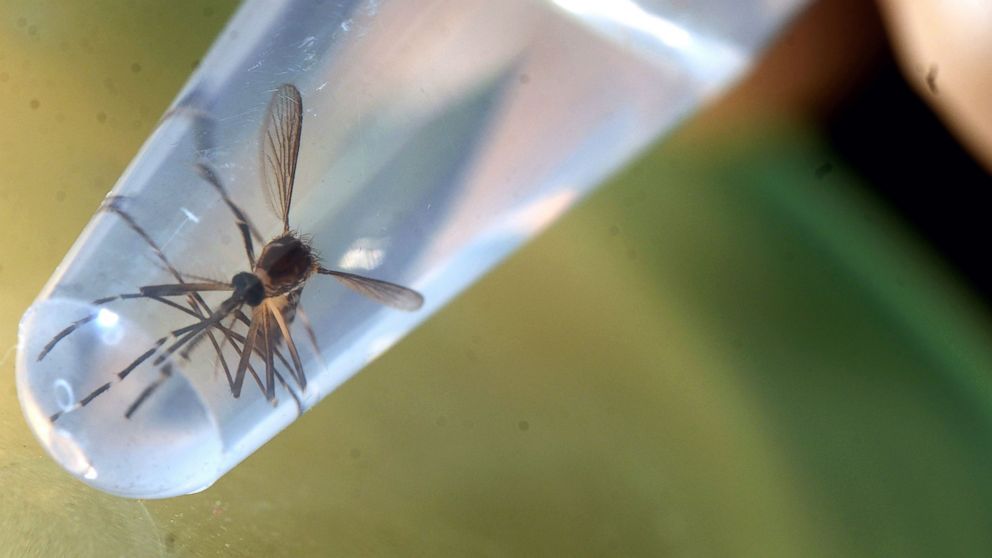Amid Zika Outbreak, England Warns Pregnant Women to Delay Travel to Florida
The nation's public health agency updated its travel advice.

— -- Public health officials in England are advising pregnant women to delay nonessential travel to Florida after the first known cases of likely local transmission of the Zika virus were discovered in the U.S.
In its updated travel advice, Public Health England increased the risk designation for Florida from low to medium.
"The risk in Florida is considered moderate based on the number and spread of cases and their demonstrated ability to implement effective control measures for similar diseases such as dengue -– a virus transmitted by the same mosquito," the health agency said in its public guidance. "Pregnant women should consider postponing nonessential travel to affected areas until after the pregnancy. At present, only a zone of about 1 square mile in Miami-Dade County is considered at risk of active transmission."
State health officials confirmed Friday that they believed people ill with Zika acquired the infection locally, marking the first time the virus has been suspected to have been transmitted via infected mosquitoes within the continental United States. At least four people -- three men and one woman -- have been infected through local transmission so far, officials said.
The medical director of England's public health agency said officials there weren't surprised by the outbreak in Florida.
"We know the Aedes aegypti mosquito, which is known to carry Zika virus, is present in Florida," said Paul Cosford, director of health protection at Public Health England.
He added that the previous success in Florida of controlling similar diseases such as dengue, transmitted by the same mosquito as Zika, led British health authorities to classify the current risk to pregnant women visiting the state as moderate.
"Pregnant women are advised to consider postponing nonessential travel [to Florida] until after pregnancy," he said. And, all English visitors to the state are advised to avoid mosquito bites, he added
A small area north of downtown Miami that is about a square mile in size is believed to be the only place where the Zika virus is being transmitted from mosquitoes to people. The area is under close surveillance and door-to-door outreach is under way there, officials said at a press conference Friday.
State and local officials have also been contracting with local companies to eliminate mosquito habitats through increased spraying, including of aerial liquid larvicide.
"Florida has become the first state in our nation to have local transmission of the Zika virus," Florida Gov. Rick Scott said Friday.
"We're being very aggressive at testing people there. we are testing the mosquitoes there, and we spraying to make sure it's contained," Scott said, adding that health officials do not think that the transmission was ongoing.
For months, health experts have warned that a small local outbreak of the disease was likely to occur within the U.S. and that local and state health departments should be ready. The Zika cases in Florida come at a time when tourists from around the world are visiting the Sunshine State's theme parks, beaches and urban arts districts.
And while public health officials in England have updated the country's travel advice in light of the outbreak in Florida, the leading national public health institute in the United States is not yet advising pregnant women to avoid non-essential travel to the southern state.
"All the evidence we have seen indicates that this is mosquito-borne transmission that occurred several weeks ago in several blocks in Miami," Dr. Tom Frieden, director of the Centers for Disease Control and Prevention (CDC), said in a statement Friday. "We continue to recommend that everyone in areas where Aedes aegypti mosquitoes are present -— and especially pregnant women —- take steps to avoid mosquito bites. We will continue to support Florida's efforts to investigate and respond to Zika and will reassess the situation and our recommendations on a daily basis."
Since the start of the Zika virus outbreak in Central and South America, the CDC has recommended pregnant women postpone travel to countries where local transmission has occurred, even in some instances where the number of cases was small. Frieden said the CDC would not be issuing travel advisories based on the cases in Florida at this time because there's currently no evidence that the transmission is ongoing and there have been "intense mosquito control efforts" in southern Florida for the past several weeks.
A CDC spokesperson said the question of whether to issue a travel recommendation is "literally a day-by-day decision.”
ABC News' Richard Besser, Dan Childs and Gillian Mohney contributed to this report.




